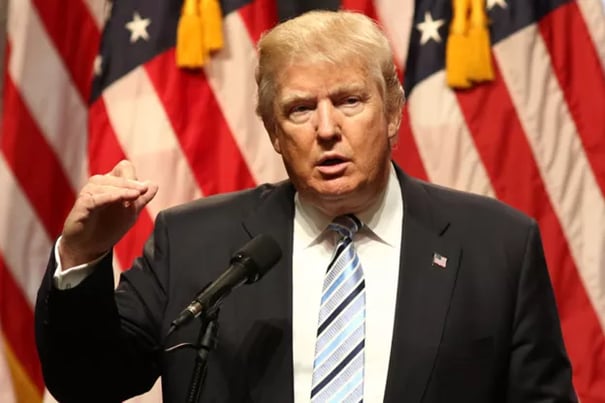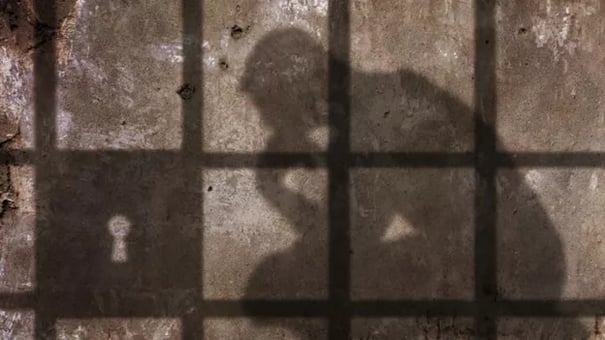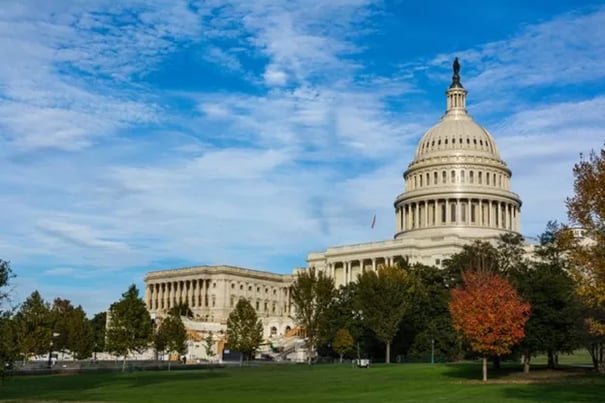Substance abuse is a pervasive problem in the United States and one that every politician running for office has promised to address once and for all. Despite all the pledges and pleas, it still remains one of the greatest challenges our country faces, claiming thousands of lives each year. But can Trump’s drugs policies turn this around?
What is Donald Trump’s stance on drug abuse and prevention, and how has it evolved over the years? How do U.S. citizens feel about his policies? Join Avenues Recovery, pioneers in addiction rehabilitation, as we explore further.
Trump’s Drugs Approach

While in office, Trump’s approach to the substance abuse crisis has been more traditional and right-wing - emulating the hard-core “war on drugs” of the 1980s and 90s. Known as the “Law and Order” candidate during his presidential campaign, he believes in strict drug laws and rigid enforcement and litigation, to the point of repeatedly proposing the death penalty for high-level drug traffickers (with the authorization of the Department of Justice). “Some countries have a very, very tough penalty – the ultimate penalty – and by the way, they have much less of a drug problem than we do”, he was quoted as saying.
Trump also planned to build an unbreachable wall on the U.S. border, securing it and stopping the flow of illicit drugs from Mexico – the primary source of illegal drugs in America. In his initial drug control plan at the beginning of his administration, Trump also planned to put an end to “sanctuary cities” and deport drug cartel members to their native country for prosecution. This was dubbed the ‘Donald Trump drug dealer death penalty’.
According to the Office of National Drug Control Policy (ONDCP), Trump’s planned measures to address the nation’s drug problem were based on a three-pronged strategy:
1. Reduce the demand for drugs through continued education, awareness, and prevention efforts
2. Cut off the flow of illegal drugs across our borders and within our communities
3. Expand opportunities for addicts to receive evidence-based addiction treatment
In his words “We will work to strengthen vulnerable families and communities, and we will help to build and grow a stronger, healthier, and drug-free society”.
Trump’s Early Promises
Interestingly enough, Trump’s earlier stance on drugs was quite dissimilar to his present one – in fact, he seems to have made a 180-degree turn.
In the 1980s and 90s, Trump was strongly pro-drug legalization and reform, arguing that it was the only viable way to win our nation’s war on drugs. He proposed an elaborate plan for a legalized and taxable drug trade, with all tax revenues going toward awareness, education, prevention, and treatment efforts. In a speech at a 1990 luncheon held by the Miami Herald, he declared “We’re losing badly the war on drugs. You have to legalize drugs to win that war. You have to take the profit away from these drug czars”. He expressed the sentiment that the U.S.’s current drug enforcement policy was a “joke” – and that significant reforms would have to be made in order to turn the tide.
Trump was also strongly in favor of increasing federal funding for substance abuse treatment, going so far as to donate his third-quarter salary to the Department of Health and Human Services in one year. He cited his personal experience with substance use disorder – his eldest brother Freddy Trump passed away in 1981 at age 40 from alcoholism – as a motive for his strong support of drug law reform.
2016 Presidential Campaign
During his 2016 presidential campaign, Trump’s stance seemed to have shifted towards the punitive approach. He vowed to pursue drug traffickers relentlessly and to address the growing opioid epidemic once and for all. In a confusing twist, though, he expressed support for medical marijuana and said that he believed the issue of whether or not to legalize recreational marijuana should be left up to the states.
Changing Stances
Once elected president, it was time for Trump to deliver on the many promises he’d made on the campaign trail. His new administration signaled in various ways that they would begin to take a more aggressive approach to substance abuse, including the election of several people with a history of support for unforgiving drug policies. Jeff Sessions, who has strongly opposed the legalization of cannabis and called repeatedly for harsher drug and gun prosecution, was brought in as Attorney General.
Trump’s war on drugs began. He declared the current opioid epidemic a “national public health emergency” in 2017 and then appointed a commission to analyze the issue in depth and advise the White House as to how to proceed forward. Other aggressive measures proposed included higher penalties for drug-related offenses, cutting nationwide opioid prescriptions by one-third, and stronger enforcement at the American-Mexican border. As mentioned earlier, Trump was also in favor of capital punishment and/or extradition for high-profile drug traffickers and members of transnational criminal organizations. Trump would execute drug dealers as necessary to end the battle on America’s crippling drug use.
In addition to Trump’s pursuit of drug dealers, Trump’s long-promised decision to repeal Obamacare would leave hundreds of thousands of addicts stranded without insurance coverage – and unable to receive the addiction treatment they need.
Endorsed Reforms
Surprisingly, Trump also endorsed some drug policy reforms during his tenure as president. In 2018, he signed the First Step Act into law – a measure that was intended to reduce mandatory minimum prison sentences for nonviolent drug offenders and make broad reforms to the criminal justice system.
He also promised to support and secure federal funding for the Comprehensive Addiction and Recovery Act (also known as CARA), a federal act intended to support substance use prevention programs and increase the use of mandated addiction treatment in the place of incarceration.
In 2020, Trump signed the MORE (Marijuana Opportunity Reinvestment and Expungement) Act, which decriminalized marijuana at the federal level and allowed each state to create its own marijuana law. It also intended to remove some marijuana-related convictions and create the possibility to resentence individuals convicted of marijuana-related offenses. It aimed to invest some revenue brought in by marijuana taxes back into communities affected by federal drug law enforcement.
(It is worthwhile to note that Trump’s endorsement of the MORE Act may have come merely in response to the death of George Floyd and the resulting upheaval and racial justice protests, in an effort to regain political favor in the eyes of the colored community.)
Altogether, Trump’s drug policies and political stance on drug law and enforcement have been volatile and unpredictable, shifting with time. It may be safely said that the deciding factor was the direction in which the political wind was blowing: He changed his approach as necessary to garner the support he needed from the populations he needed.
“The Drug Czar”

Another appointment made by Trump which indicated his right-wing approach to drug control was Republican Congressman Thomas Anthony (Tom) Marino. A former prosecutor with little to no experience in a drug control policy, Marino was nominated to lead the Office of National Drug Control Policy (ONCDP) and earned the nickname “Drug Czar”. This was despite the fact that Marino was well-known for his intolerant attitude towards criminal justice reform and marijuana legalization and support for extreme measures such as hospital-slash-prison institutionalization for every individual convicted of even a minor drug offense. According to the Drug Policy Alliance:
“Marino, a former prosecutor with no background in health or treatment, supports a punitive, 1980s style approach to drugs, including mass incarceration and coerced treatment, even for medical and non-medical marijuana. Drug Policy Action, the political arm of the Drug Policy Alliance, gave him an “F” in their 2016 congressional voter guide.”
Marino resigned less than a month after his appointment after it came to light that he had sponsored and pushed through the “Ensuring Patient Access and Effective Drug Enforcement” Act. This bill significantly impeded the Drug Enforcement Administration’s ability to prosecute pharmaceutical companies that supplied corrupt physicians and pharmacists with opioids for diversion to the black market. The bill was pushed heavily by major drug distributors and was seen as a significant hindrance to efforts to combat the opioid crisis. Despite his strong stance on drug enforcement, Marino shepherded the controversial bill through Congress – in exchange for $100,000 from the pharmaceutical lobby.
Results (Or Lack of Them)

When reflecting on the four-year tenure of Trump and the results it wrought on drug policy and the opioid crisis, the facts are that not all that much was accomplished. Studies published by the CDC showed that despite an overall decline in overdose deaths, numbers have still not returned to their previous levels in 2016. Deaths due to synthetic opioids, cocaine, and psychostimulants continued to rise. The ONCDP ran without a director for the first two years of Trump’s time in office, and Trump’s first nominee – Tom Marino – resigned after a mere two months. His bold declaration of a public health emergency lapsed due to what a spokesperson called a “clerical error”, and the declaration itself had no significant impact. Some of the president’s decisions directly undermined or contradicted each other – like calling for increased access to substance abuse treatment, yet repealing the Affordable Care Act and causing thousands to lose Medicaid coverage.
In short, Trump’s drug policies across his political career have been largely inconsistent and constantly subject to change. It is very likely that he has changed his views in accordance with the political climate, adjusting policies as necessary to garner the support and votes he needed. He has shown exceptional prowess at bluster and dramatic calls to action, while drug use and overdose statistics have at best remained the same. At the end of the day, no meaningful changes have been made under his administration.
We’re Here to Help (Even if Trump Can’t)
If you or a loved one are struggling with an addiction, Avenues Recovery is here to support you! Leaders in addiction rehabilitation, we understand the challenges in attaining sobriety. Contact us to hear more about the detox and treatment programs that we offer around the USA. You deserve better than a life of addiction.


